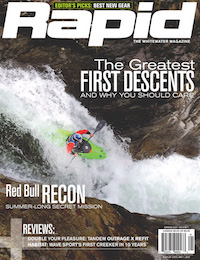In his book Last Child in the Woods, Richard Louv evaluates the current state of kids and the outdoors. He presents the reader a long list of benefits for kids spending time in nature including improved health, more active imaginations, increased social confidence and better decision making skills. Add to that list reduced incidence of Attention Deficit hyperactivity Disorder and obesity, and reduced tendencies toward anti-social activity, such as crime, and you have a very compelling case for what we already know—being outdoors is good for kids.
However, Louv goes on to paint a pretty sad picture. Kids today are increasingly cut off from nature by urban development, societal fear and intolerance for risk, and the annihilation of outdoor education and natural science curriculums in schools. Not to mention helicopter parents hovering over their little ones, protecting them from what they feel is risky.
The real kicker, Louv argues, is if they don’t have a relationship with nature, kids today will have little value, use, or need for it as adults, adults who will eventually make decisions on behalf of the environment.
We river people are in the same boat. Look around your local put-in next spring; chances are you won’t find anyone under the age of 15. Who will look after our rivers when the current crop of paddlers gets too old and tired to continue the fight?
Other outdoor sports are doing a better job. Climbing gyms cater to kids’ birthday parties. The Jackrabbit cross-country ski program has been around for generations. All kids learn to ride bikes and the downhill ski industry has gone so far as to provide free ski passes to all kids in Grade 5. They know the likelihood of them skiing as adults hinges on skiing before the age of 11.
In 1997, when the first Wave Sport Stubbies appeared on my home river, I predicted kayaking would become a kids’ sport. The stubby proved an ideal boat for beginners and kids. It was stable and short, so they could turn it. It was fat, so water shed from the deck, eliminating the need for a potentially dangerous skirt. It was magic.
Despite that promising start, my predicted boom didn’t happen.
I later realized the barriers kids must overcome to get into whitewater.
Access to appropriate whitewater is a big one. And gear. But digging deeper, Louv argues that overall kids have less interaction with nature at home and school. Outdoor education is under attack across school boards, in some cases banning whitewater altogether.
All is not lost.
RPM dads, the first generation of the whitewater boom, are now returning to the rivers bringing their elementary and high school kids with them. Teen-oriented paddling programs, whitewater day camps and parent-child paddling programs are springing up across North America. Canoe tripping camps also continue their work introducing kids to wilderness camping and paddling.
The Jackson Kayak’s Fun kid’s kayak, Composite Creations’ Splash open canoe and Werner’s small-shaft paddles are breaking down the equipment barriers. Although they will never likely be considered commercial successes, they are valuable investments in the future of our rivers.
Louv has coined the term “nature deficit disorder” to label the current disconnect between kids and nature. But pint-sized gear, progressive programs and a new generation of parents may be leading the way toward a much-needed nature-child reunion.
“Environmentalists need the goodwill of children,” concludes Louv, “to [help with] the serious adult work of saving the world.”
How can we save our rivers?
Take a kid paddling.
Jeff Jackson is on parental leave from his position as Professor of Outdoor Adventure at Algonquin College in Pembroke, Ontario.




